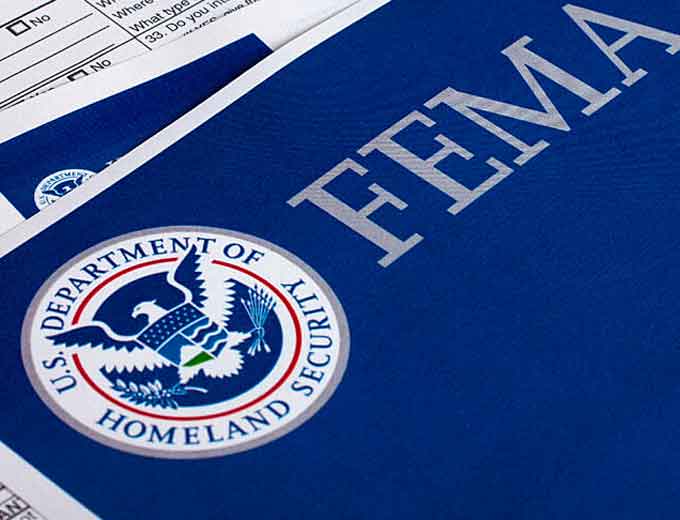
David P. Pekoske, senior official performing the duties of the Deputy Secretary of Department of Homeland Security (DHS), has announced the release of Fiscal Year 2019 (FY19) Notices of Funding Opportunity for eight DHS preparedness grant programs totaling more than $1.7 billion.
The grants reflect DHS’s focus on funding for programs that address our nation’s immediate security needs and ensure public safety in our communities, by providing funding to state, local, tribal, and territorial governments, as well as transportation authorities, nonprofit organizations, and the private sector, to improve the nation’s readiness in preventing, protecting against, responding to, recovering from and mitigating terrorist attacks, major disasters, and other emergencies.

“The administration remains committed to strengthening the security and resilience of our state and local communities,” explained Pekoske.
“The DHS grant programs are flexible by design and will be used to help address evolving threats.”
“They will go toward building and sustaining capabilities across all levels of government and the whole community to maximize preparedness.”
“The FY 2019 grant guidance will continue to focus on the nation’s highest risk areas, including urban areas that face the most significant threats.”
For FY 2019, the Urban Area Security Initiative (UASI) will enhance regional preparedness and capabilities by funding 31 high-threat, high-density urban areas.
This represents Congressional intent to limit FY 2019 UASI funding to those Urban Areas that represent up to 85 percent of the nationwide risk, as stated in the Explanatory Statement accompanying the Department of Homeland Security Appropriations Act, 2019 (Pub. L. No. 116-6).
Consistent with previous grant guidance, dedicated funding is provided for law enforcement and terrorism prevention throughout the country to prepare for, prevent and respond to pre-operational activity and other crimes that are precursors or indicators of terrorist activity.
Grant recipients are encouraged to use grant funding to maintain and sustain current critical core capabilities through investments in training and exercises, updates to current planning and procedures, and lifecycle replacement of equipment.
New capabilities that are built using homeland security grant funding must be deployable if needed to support regional and national efforts.
All capabilities being built or sustained must have a clear linkage to the core capabilities articulated in the National Preparedness Goal.
Preparedness Grant Program Allocations for Fiscal Year 2019 Include:
Emergency Management Performance Grant (EMPG)
EMPG provides more than $350 million to assist state, local, tribal, territorial governments in enhancing and sustaining all-hazards emergency management capabilities.
Homeland Security Grant Program (HSGP)
HSGP provides more than $1 billion for states and urban areas to prevent, protect against, mitigate, respond to, and recover from acts of terrorism and other threats.
State Homeland Security Program (SHSP)
-
-
SHSP provides $415 million to support the implementation of risk-driven, capabilities-based State Homeland Security Strategies to address capability targets.
-
States are required to dedicate 25 percent of SHSP funds to law enforcement terrorism prevention activities.
-
Urban Area Security Initiative (UASI)
-
-
-
UASI provides $590 million to enhance regional preparedness and capabilities in 31 high-threat, high-density areas.
-
States and Urban Areas are required to dedicate 25 percent of UASI funds to law enforcement terrorism prevention activities.
-
-
Operation Stonegarden (OPSG)
-
-
-
Provides $90 million to enhance cooperation and coordination among local, tribal, territorial, state, and federal law enforcement agencies to jointly enhance security along the United States land and water borders.
-
-
Since the enactment of the 9/11 Act, FEMA has required states to ensure that at least 25 percent of the total funds awarded to them under SHSP and UASI are dedicated toward law enforcement terrorism prevention activities (LETPA).
The total LETPA allocation can be satisfied from SHSP, UASI, or both.
Additionally, states must obligate at least 80 percent of the funds awarded under SHSP and UASI to local or tribal units of government within 45 days of receipt of the funds.
Tribal Homeland Security Grant Program (THSGP)
-
THSGP provides $10 million to eligible tribal nations to implement preparedness initiatives to help strengthen the nation against risk associated with potential terrorist attacks and other hazards.
Nonprofit Security Grant Program (NSGP)
-
NSGP provides $60 million to support target hardening and other physical security enhancements for nonprofit organizations that are at high risk of a terrorist attack.
-
This year, $50 million is provided to nonprofits in UASI-designated urban areas, and $10 million is provided to nonprofits located in any state or territory.
Intercity Passenger Rail – Amtrak (IPR) Program
-
IPR provides $10 million to protect critical surface transportation infrastructure and the traveling public from acts of terrorism and increase the resilience of the Amtrak rail system.
Port Security Grant Program (PSGP)
-
PSGP provides $100 million to help protect critical port infrastructure from terrorism, enhance maritime domain awareness, improve port-wide maritime security risk management, and maintain or reestablish maritime security mitigation protocols that support port recovery and resiliency capabilities.
Transit Security Grant Program (TSGP)
-
TSGP provides $88 million to owners and operators of transit systems to protect critical surface transportation and the traveling public from acts of terrorism and to increase the resilience of transit infrastructure.
Intercity Bus Security Grant Program (IBSGP)
-
IBSGP provides $2 million to owners and operators of intercity bus systems to protect critical surface transportation infrastructure and the traveling public from acts of terrorism and to increase the resilience of transit infrastructure.
















